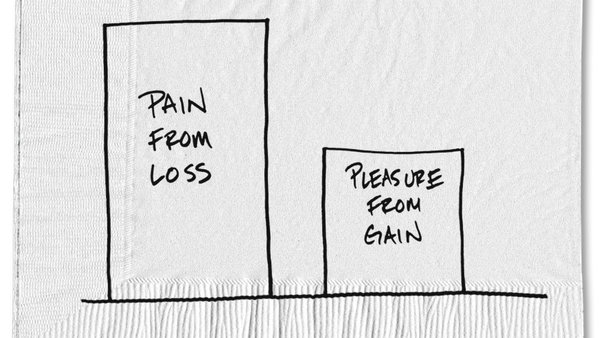Consumer psychology explores the reasons why people buy things – why they buy the things they do, what external motivations influence them, and how they respond to marketing. Let’s explore three concepts in psychology that have an effect on how marketers influence their customers and examples of ads utilizing these concepts today.
Loss Aversion
Loss aversion refers to the concept that people feel loss more intensely than they feel gain. Take this situation, for example, you overhear you boss talking to HR about how she would like to increase your salary by $300/month. How would you feel? Probably pleasantly surprised, happy and even excited! But what if you heard exactly the opposite – that she needed to decrease your salary by $300/month? This would cause some strong negative feelings – anger, sadness, and even fury. According to Thai Nguyen of the Huffington Post, “our emotional reaction to loss is twice as intense as our joy in gain.”

So how as marketers, can we harness these intense emotions to sell products and services? We need to emphasize the consequences of inaction. Motivate people to buy your products or services to avoid negative outcomes. For example:
“Avoid losing web traffic and ultimately sales, by increasing your SEO efforts with our monthly SEO package.””
“You could be wasting $X a month on channels you don’t even watch. Switch to ABC Digital Cable and only pay for the channels you actually want.”
Loss aversion shows us that people value what they have more than what they want.
Framing Effect
The framing effect refers to the concept that people will react to the same situation or information in different ways depending on how it is presented to them. Take for example the classic experiment done by Kahneman and Tversky. In the 1980s, they split participants into two groups and asked them to make make a difficult decision: choose between two treatments for a group of 600 people infected with a deadly disease.
Group 1 was told Treatment A “would save 200 lives,” while with Treatment B there was “a one-third probability of saving all 600 lives and a two-thirds probability of saving no one.” Most participants in Group 1 chose Treatment A because it was certain that people would be saved.
Group 2 was told that with Treatment A, “400 people will die,” and with Treatment B there will be “a one-third probability that no one will die, and a two-thirds probability that 600 people will die.” In Group 2 the results were reversed – most chose Treatment B.
Treatment A and Treatment B were exactly the same in both groups, all that changed was the wording. So what does this tell us about marketing? Context is everything. Take a look at the following example:

Which frozen yogurt would you choose? Most people would probably choose the container on the left, even though both containers say the same thing. It is all about context. A/B testing is critical in all marketing materials when determining the most effective way to convey your message.
Lastly, let’s look at Zajonc’s Mere Exposure Study. The mere exposure principle states that people tend to favor things that they are familiar with. So, repeated exposure to something leads to more positive feelings about it.

How does this help in marketing? Merely exposing people to your brand, product or service more often will give you more power. Increase your exposure through blogging, social media, PPC, email marketing and video creation. The more active you are in your community, the more presence you acquire, on and offline. This leads to more people thinking positively about your brand and increases your business.
Conclusions
Loss aversion, the framing effect, and the mere exposure principle are great theories to start with when creating a marketing plan and strategy. But remember that you have a unique brand and circumstances, so testing and continually optimizing these theories to fit your specific needs is crucial. It is ultimately up to you to find the perfect formula for marketing success!

